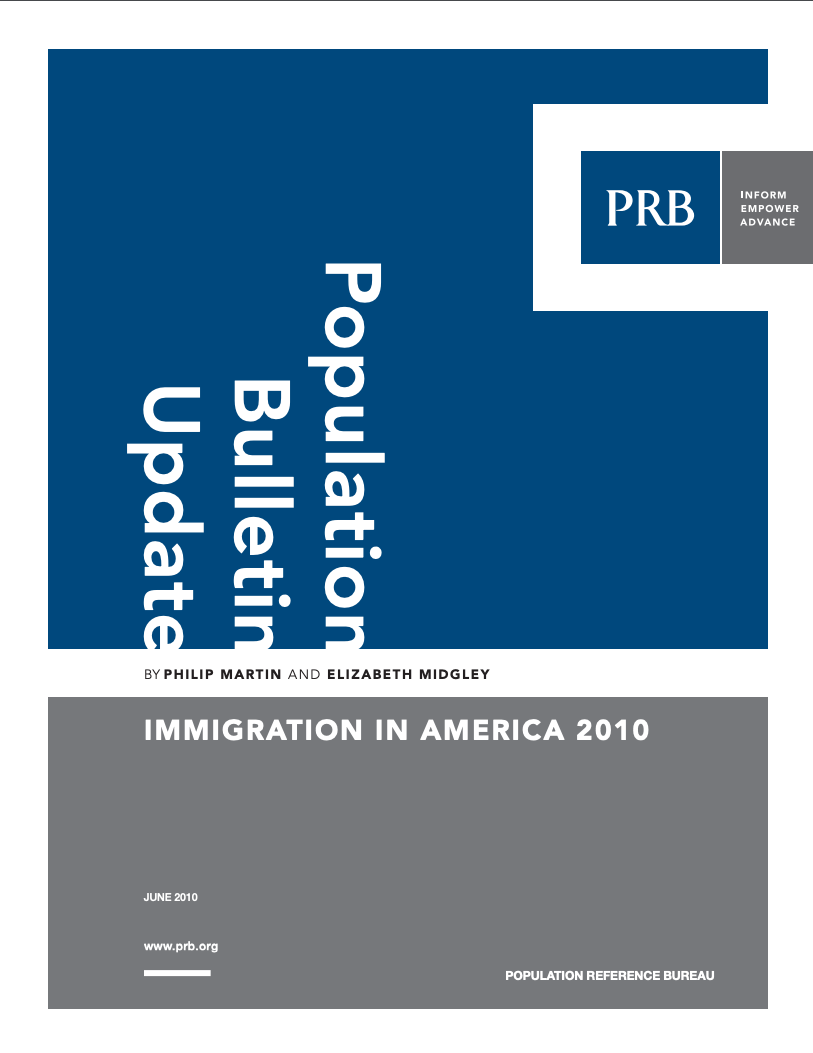
Immigration: Shaping and Reshaping America
Product: Population Bulletin
Authors: PRB
Date: December 11, 2006
The Population Bulletin Update, “Immigration in America 2010,” released in June 2010 is a follow-up to 2006’s Population Bulletin, “Immigration: Shaping and Reshaping America” by Philip Martin and Elizabeth Midgley, and provides new data and analysis on the economic impacts and policy debates around immigration.
(December 2006) Recent waves of immigrants have brought greater diversity to the population in the United States. Between 1990 and 2005, 14.5 million immigrants—an average of almost 1 million a year—became permanent legal U.S. residents. Another 500,000 or more settled here illegally each year.
While the United States has always celebrated its immigrant heritage, Americans continue to worry about the economic, political, and cultural implications of immigration. Some groups say that immigration should be limited. They contend that immigrants contribute to excessive population growth and environmental degradation, take jobs away from low-skilled American workers, depress wages, and impose a heavy burden on educational, medical, and other state and local services. Other groups propose removing limits on immigrants because the influx of new consumers and workers helps expand the economy and enrich society.
A new and updated edition of the Population Bulletin, “Immigration: Shaping and Reshaping America,” offers an overview of immigration to America. The report covers immigration patterns and policies in the United States, reviews the peaks and valleys of immigration flows, and offers a historical perspective on contemporary migration that includes a focus on immigration’s economic impact.
The Bulletin was written by Philip Martin, professor of agricultural economics at the University of California-Davis, chair of the University of California’s Comparative Immigration and Integration Program; and Elizabeth Midgley, a long-time observer and analyst of U.S. immigration trends and policy formation. U.S. immigration policy will continue to change in response to immigration flows and their impacts on Americans. “To resolve the fundamental economic, social, and political issues raised by immigration,” the authors write, “we must weigh the choices or tradeoffs between widely shared but competing goals in American society.”

 ">
">